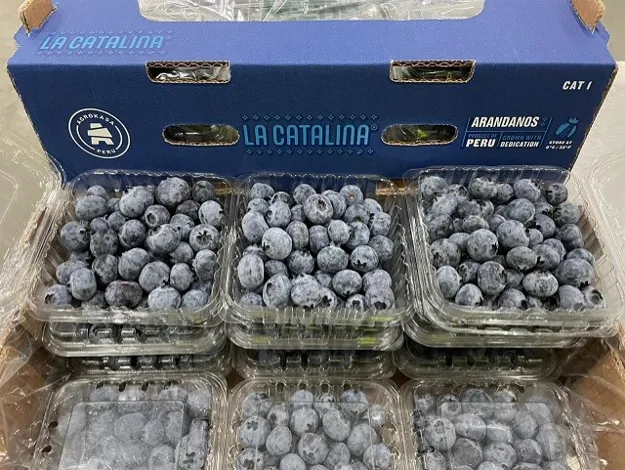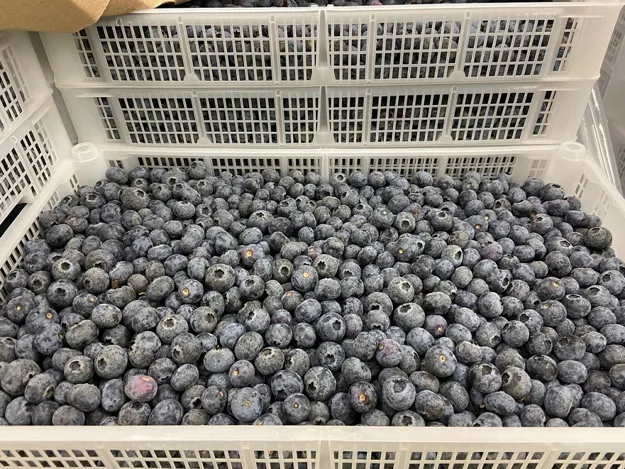Recently, Peru shipped huge volumes of blueberries to the European market. That peaked in weeks 38 and 39. "But since then, those volumes have been decreasing weekly. If you extend that line, prices should actually rise, but everyone's still too concerned with what's arriving rather than with what will come in," observes Jan Marc Schulz of SFI Rotterdam.

"Unfortunately, there are those on the market who want to pay rock-bottom prices, which makes the berry market situation dismal. The market is currently bad, even in the United States. But Peru has now sent the bulk of its blueberries, so that supply should decrease significantly in the coming weeks. I think people are somewhat fixated on the current situation, forgetting that it will be another six weeks before the first Chilean blueberry containers arrive."

"There was quite good demand for berries, boosted by promotions," says Jan Narc, "where 500g packs are often used to bring volume to consumers. In regular sales, the berries are sold in 125, 200, or 300 grams, depending on the retailer. Quality-wise, we're having a good season, but we rarely have problems with that during the Peruvian season."

Jan Marc finds it hard to say how inflation affects overseas fruit sales. "On the cost side, most everything has gone up, from plastic and cardboard to transportation. That significantly affects the entire chain. I don't consider sales disappointing; only organic berries seem somewhat out of favor. The consumption of those has dropped considerably," he concludes.
 For more information:
For more information:
Jan Marc Schulz
SFI Rotterdam
12B Mercuriusweg
3113 AR, Schiedam, NL
Email: jmschulz@sfifruit.com
Website: www.sfifruit.com
